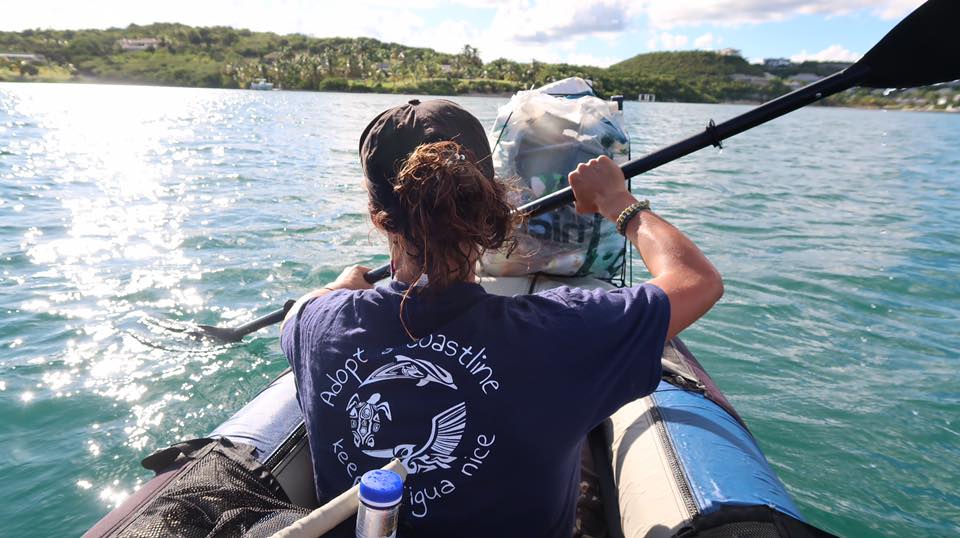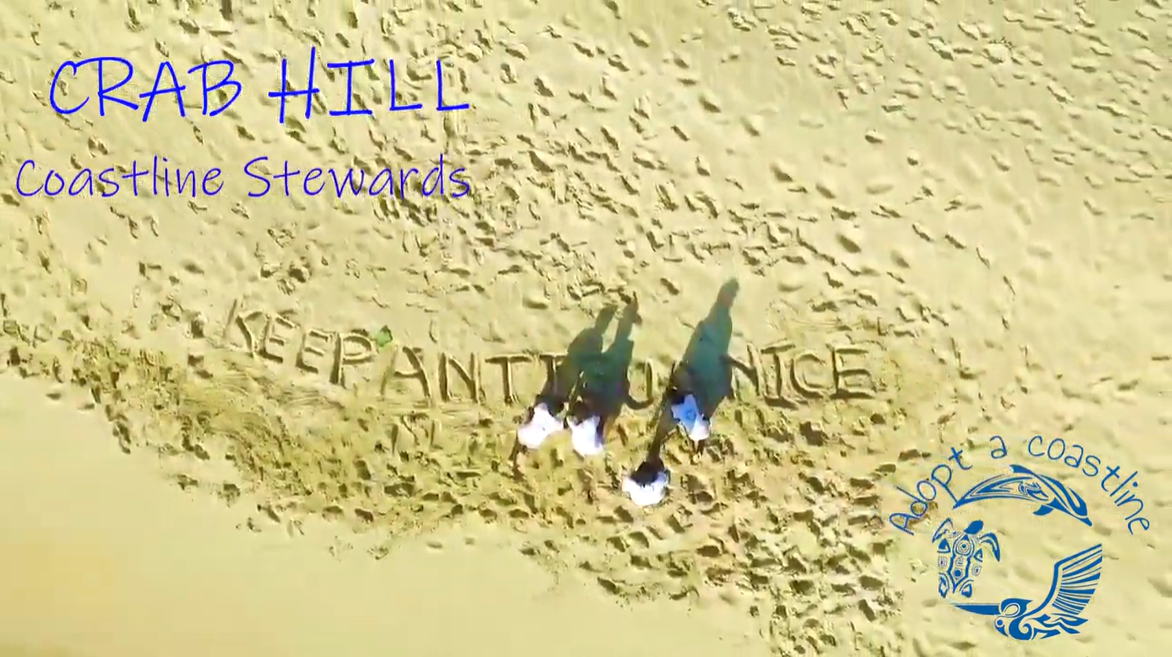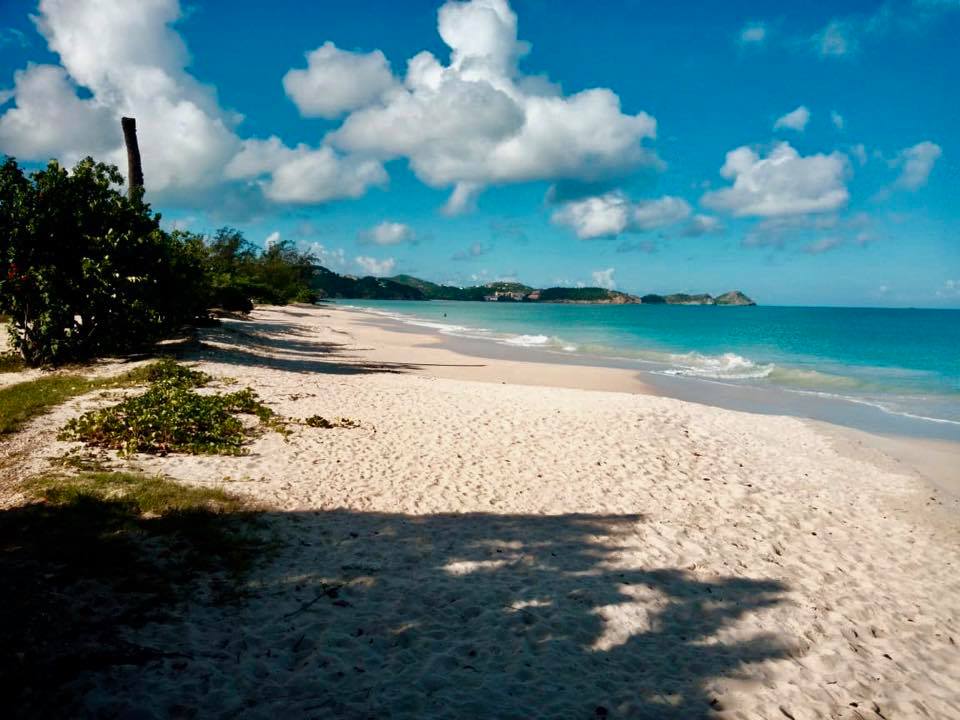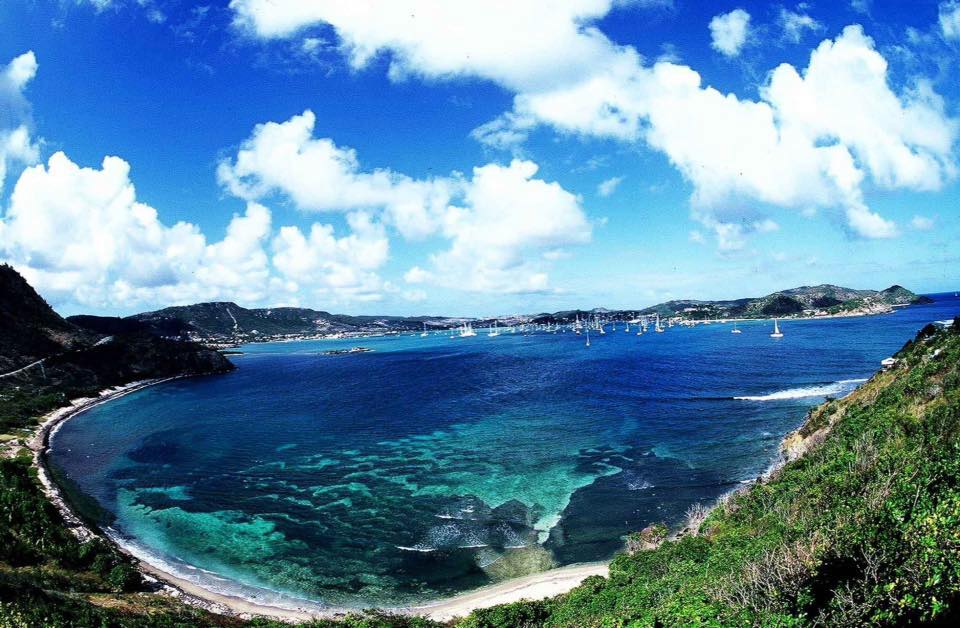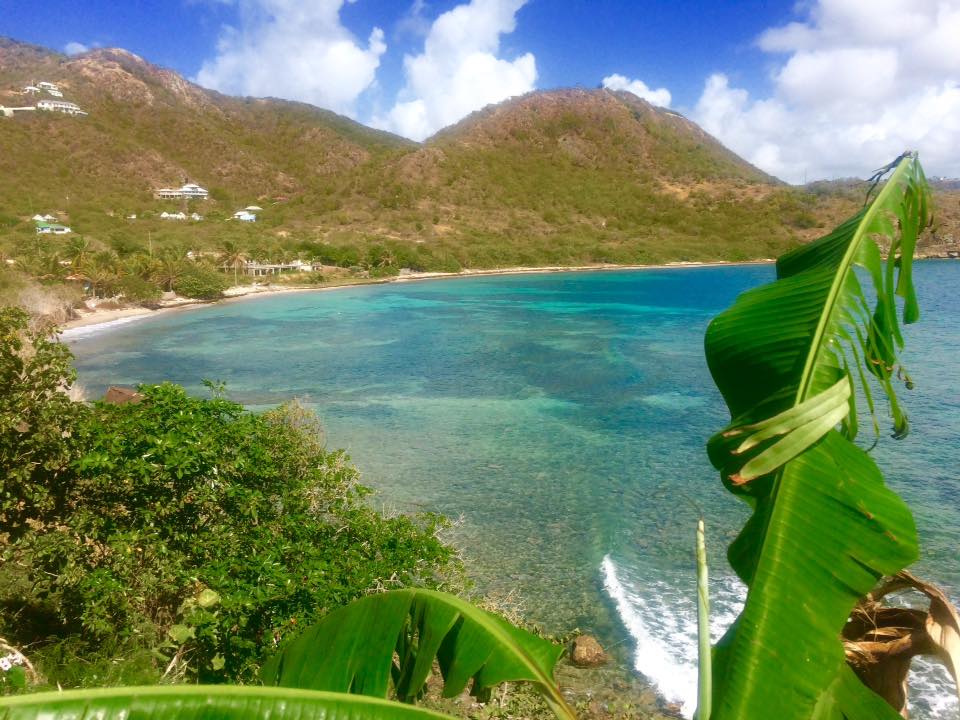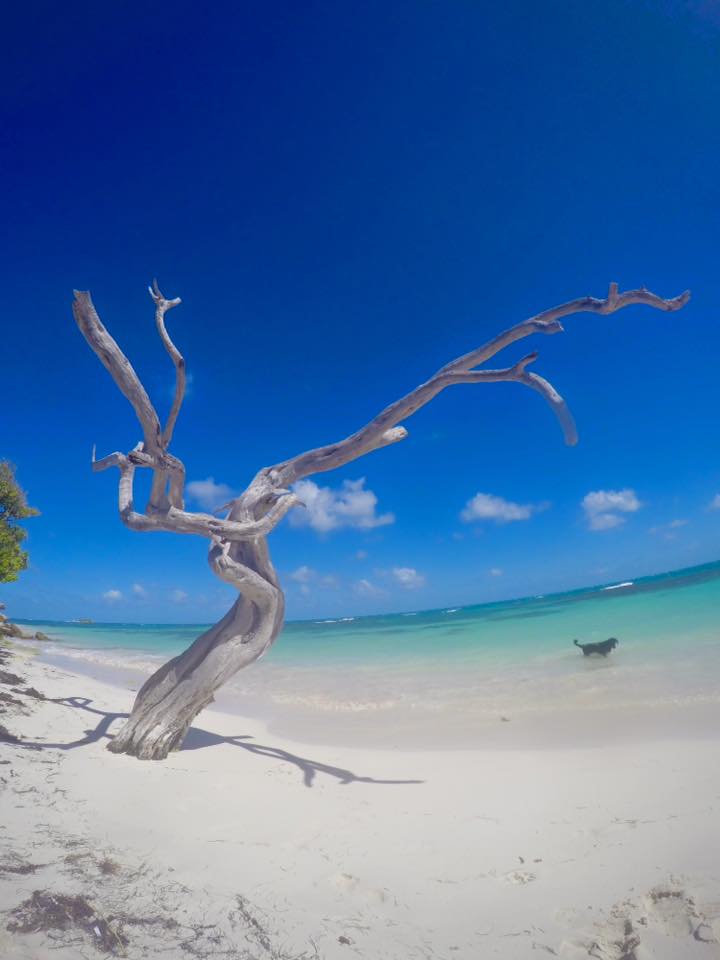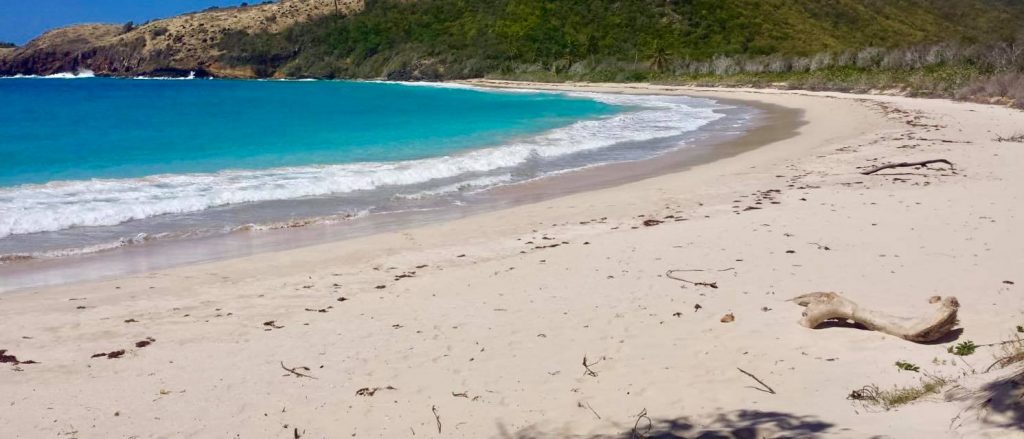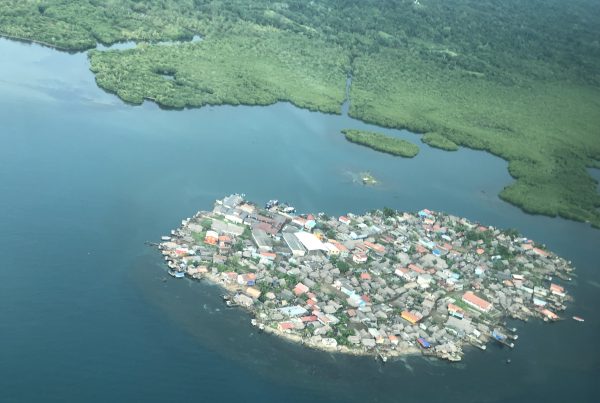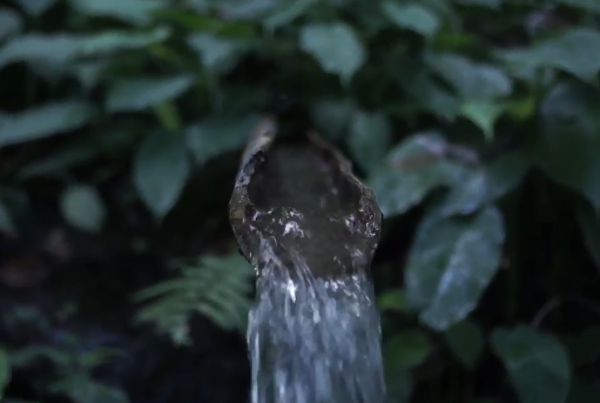The ‘Adopt a Coastline’ initiative aimed to change the attitudes and behaviour of local children through fostering and mentoring youth stewards to conserve and protect the marine and coastal assets in Antigua and Barbuda. The ‘Youth Stewardship’ programme worked to restore and preserve Antigua’s coastlines through a grassroots campaign that includes beach clean-ups, community action and education, public awareness-raising via social media, and citizen science.
To find out more about the situation in Antigua regarding pollution, and the future of the Adopt a Coastline, we hear from the initiative’s founder Jennifer Meranto, Ambassador Kat Byles, and Refica Attwood, director of the community management initiative on the Island Wallings Forest Area.
Pollution as a problem in Antigua
Refica –
I was one of those persons that took a while [to become engaged]. I hated coming to certain areas because they were so untidy. Nobody was taking care of them. I used to be one of those people who just complained about it, but then I was told, “try and fail, don’t fail to try.”
And I started Wallings Nature Reserve in 2018 and we’re still here in 2022, getting recognized for practising sustinable development and managing and protecting the area’s biological diversity. It has not been an easy journey.
Using a kayak can be a good way to collect rubbish on the coastlines of Antigua. Credit Adopt a Coastline
Authors
- Jennifer Meranto, Founder of Adopt a Coastline Initiative
- Kat Byles, Ambassador of Adopt a Coastline Initiative
- Refica Attwood, Executive Director for the first community management initiative on the Island Wallings Forest Area managed by Wallings Nature Reserve Inc.
Ecosystems
- Marine and coastal
Topics
- Conservation and sustainable use
- Incentives
Type
- Long-form
Date
- This case study forms part of LBO-2, originally released in 2020. Interviews and updates took place in 2022.
Kat –
I hate rubbish. It is upsetting to see it on the beach, in the village, in nature which is so incredibly beautiful in Antigua – we are privileged to be here. Just like in the UK, people throw litter out of the car on to the roadside and after heavy rain, it ends up on the beach or in the sea, harming nature and getting in the food chain. I want to stop the process of rubbish ending up in the sea.
In Antigua there isn’t a process to deal with trash. It ends up in the sea or landfill at Cook’s dump, which is overflowing. There’s no recycling, no management of waste yet. Eventually I’d love to see Adopt a Coastline inspire waste reduction and waste management best practices in Antigua.
Jennifer –
I started seeing trash while hiking along pristine coastlines where birds and animal life thrived, it really upset me so I started cleaning up as a personal growth project. I called it Project Trash, and I documented it with photos of my process. I had to offset 20 years of what I had left on this little island, what of mine had gone to landfill. I added the years and the bags and I cleaned for about three years along the coastlines near my house to erase my footprint. It felt great. I mined for materials and funded my efforts to create a circular economy which gave me many ideas about how I could expand this aspect.
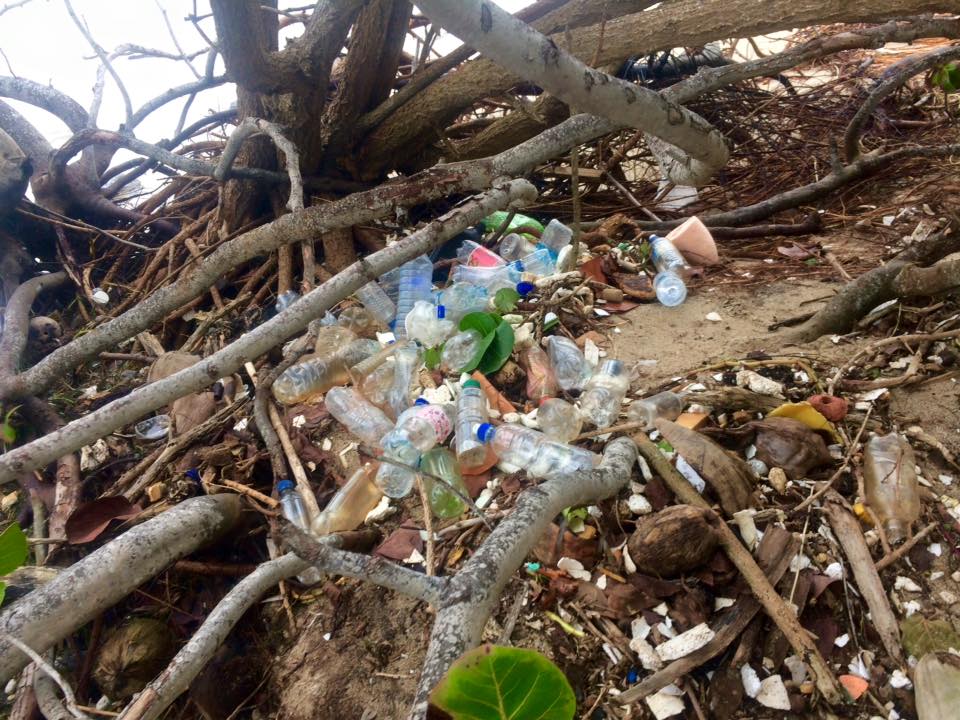
After heavy rain, a lot of rubbish is swept down to the beach or into the sea. Credit: Adopt a Coastline
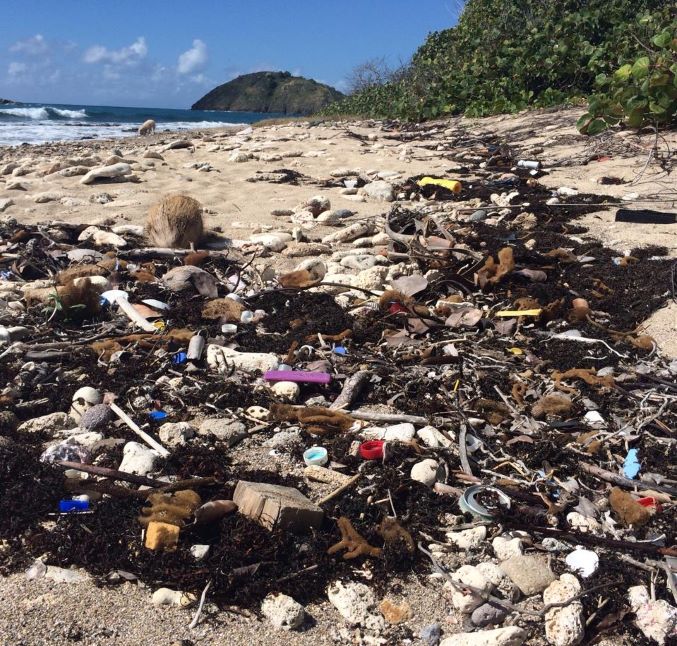
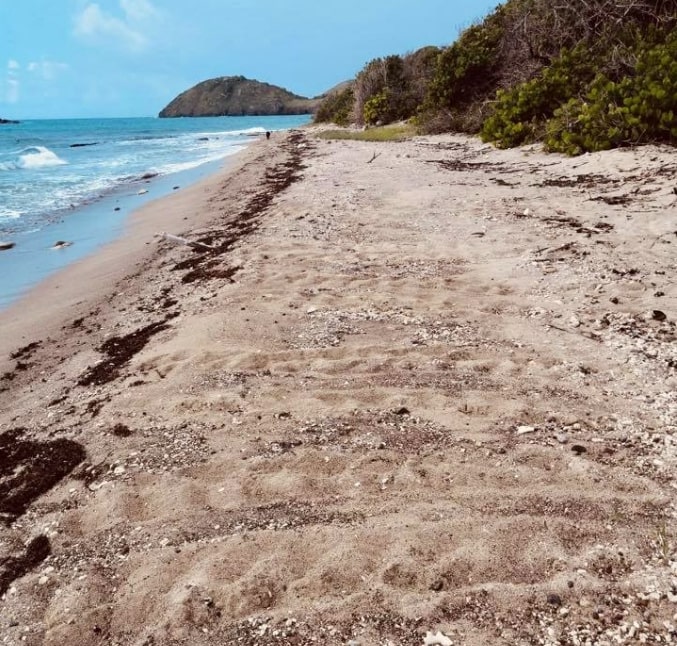
Before and after a beach clean-up and the placement of a new Keep Antigua Nice bin. Credit: Adopt a Coastline
By the end of the whole project, I had fallen in love with the ocean and nature stewardship and wanted to help more coastlines. I wanted to share with my community how our responsibility to our oceans and mother host is essential for us to participate and reclaim our inheritance to the earth. When Ruth Spencer suggested I apply for the UN GEF fund, I did – and that was how Adopt a Coastline started.
Kat –
I joined Adopt a Coastline because I want to keep trash out of the ocean, because I love community and I love the potential within young people to affect grassroots long-term change. I love the community coming together to respect and appreciate the environment, it creates a lot of wellness and connection. I also enjoy working with the kids and getting the next generation involved, out in nature and all the health benefits that has.
The Adopt a Coastline Initiative
Jennifer –
To kick off the program we organised several large group beach clean-ups in mangrove areas where birds, fish and turtles nest and feed. It was a great way to introduce people to these pristine places where wildlife is struggling to survive. After the places were cleaned we had natural leaders emerge and community members step up to mentor. We made bins from old tires painted in our logo in hopes that community would also participate and they did.
We found that when bins are emptied regularly and the beaches are trash free they stay that way.
Many people joined, we got calls from all across the island – could I sponsor a beach etc. The program has so much potential but we need to get the funding right.
We would go to collect the trash together – the kids and me and my dog – and they were always really eager. When there was no school, they would be calling me in the morning saying “let’s go finish so and so…”. The older boys really loved the challenging areas around some of the rocky coastlines, it was like an outdoor gym, you had to be fit and flexible, they had to paddle board into the groves and carry things out through the swamp – they were really good sports.
All the children, youth and young kids should be spending time learning in the school of nature and interacting with nature, once they get comfortable in nature and life they become confident and grow into better humans. We need classrooms outdoors and to integrate nature, not move away from it. That would be detrimental to our entire ecosystem – children easily see the connection and they are the future.
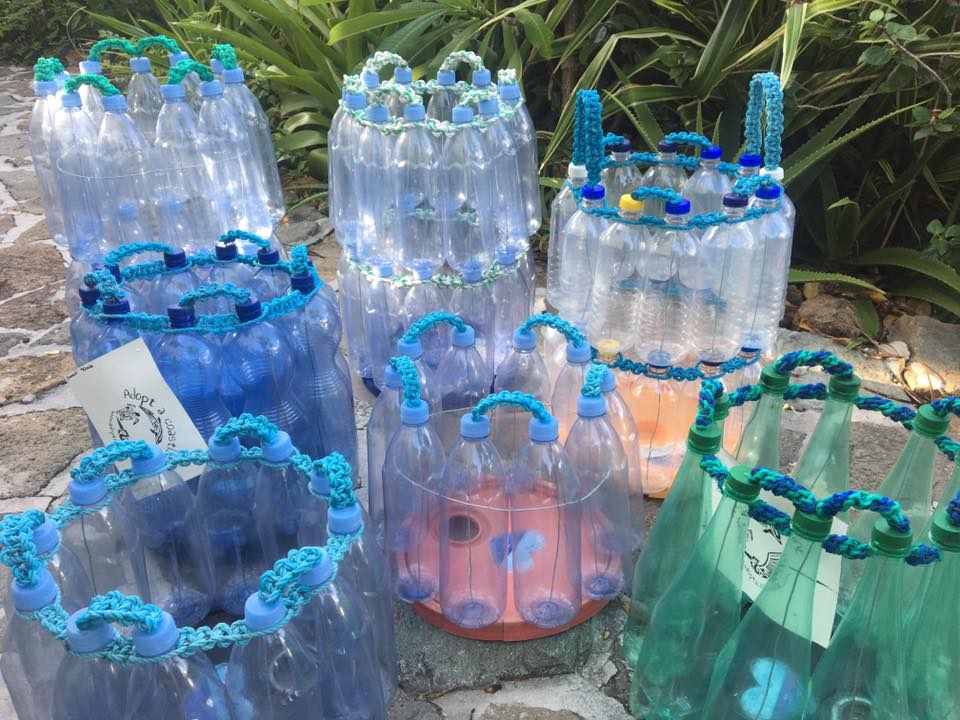
The Adopt a Coastline initiative also used single use plastic bottles to make reusable items. Credit: Adopt a Coastline
A video showing the work of youth stewards in Crab Hill, Antigua. Credit: Adopt a Coastline
Kat –
It was amazing bringing the kids together, working together to clean up the area.
We had five or six clean ups transforming the village and beach and they loved it. They were receiving money in their pocket, and were starting to think about what they could save up for.
They learnt about nature around them, how to work together as a team and when they saw the transformation they created, all the rubbish they had collected, had a sense of achievement.
Leaders started to appear. Seeing leaders rise up, the kids coming together as a team, happy and proud of what they’d done, seeing them excited about receiving money was brilliant.
In Crabbe Hill Village, a team of young people did a beach clean up every Thursday for a year, with a year of funding. They wore their uniform and they were proud, they started to get their families involved. But as the funding ran out, so did the consistency of the clean-ups.
How to keep the Adopt a Coastline initiative going
Kat –
Essentially, you need long term funding to work with a larger number of kids and hit a tipping point as they forge a deeper connection with nature.
The engagement is there, we just need larger numbers and to work together over a longer period to evoke the deeper connection with nature and behaviour change. I’d say it would need at least three years funding for the kids to become recognised and celebrated change makers.
You could already identify the leaders, those that had a closer affinity with nature and their surroundings, and with additional funding they can be nurtured into leaders to set up more clean ups and become recognised environmental stewards in their community.
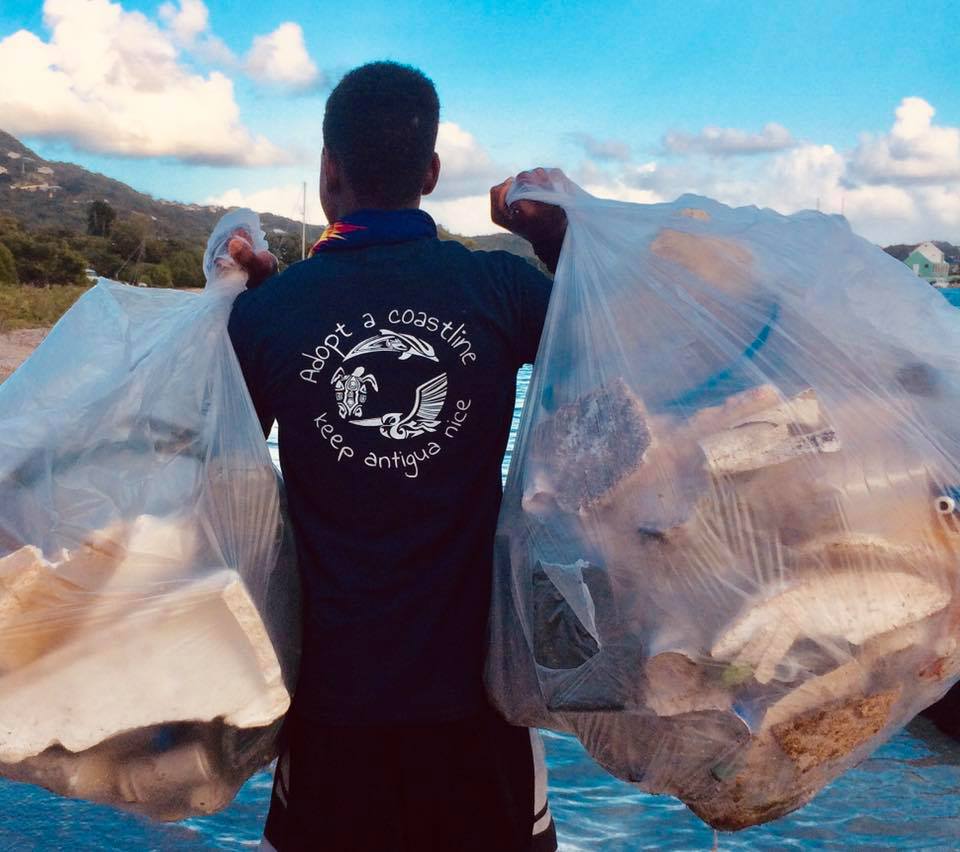
Adopt a Coastline youth steward carry trash they’ve collected. Credit Adopt a Coastline
Lasting change takes longer than we want it to. It needs to be over a minimum of 3-5 years where relationships are being built with local children and adults with the intention of them becoming local leaders with a team responsible for the project.
Tourism and Trash
Jennifer –
Trash is imported to Antigua from the first world via tourism, and it is reflected on the coastlines. Plastic water bottles are one of the biggest offenders. It is a mismanaged situation but recently we did finally get the major water bottle supplier on the island to offer a rebate on plastic bottle bring-backs and the effort seems to be working in the local sector.
However, in tourism it’s as if nothing is sacred. I think tourists at the very least should receive a reusable bottle and there should be refill stations. If every single tourist receives a small bottle of plastic water upon arrival, funded by the department of tourism, and again at the hotels, and again on tours, and excursions in nature, it is becoming unsustainable.
On a small island like this, with hardly any infrastructure for waste management, what happens is that nature takes the burden of our neglect. When we fail to see that we are creating a tourist who has no obligation to be mindful of the environment, we are not asking that they adapt to travel here. We want to give them a comfortable experience, but we cannot sacrifice nature for that, just a minor change could rectify all that nonsense. It’s bad behaviour on all sides. Humans should just know better by now how single use is harmful and stop using it.
Refica –
Tourism is both bad and good for Antigua.
You have cruise ships coming in, and they bring in extra trash. So the ship sails into the harbour, and you’re going to have to take off human waste, you’re going to have to take off the trash. And it will all be dumped in landfill. But on the other hand, they are still bringing in money.
What we really need to move away from is constantly destroying mangroves and building additional hotels. People are coming to Antigua looking to sleep under the stars, they are paying to sleep in sleeping bags. We need to move away from the idea of “I have to go to a place and stay in a hotel.” It doesn’t work that way.
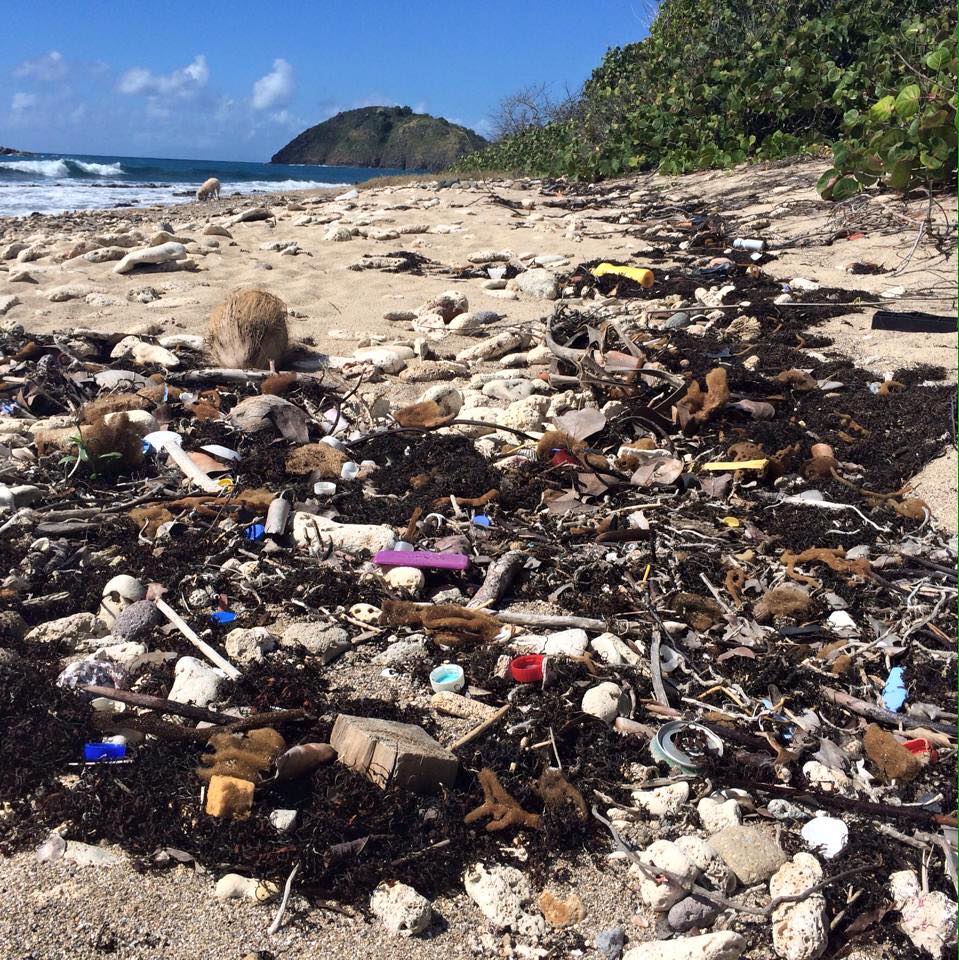
Rubbish on the beach in Antigua. Credit: Adopt a Coastline
Some of the beaches cleaned as part of the Adopt a Coastline initiative. Credit: Adopt a Coastline
Kat –
Tourism now urgently needs to be in harmony with nature and the environment. That is what many tourists want and is absolutely the future. Tourists are turning away from elite condos and five star resorts that destroy natural beauty and make local fishing spots and beaches inaccessible to local people. They want to walk on a natural beach, to be surrounded by nature and Antigua’s best asset is natural beauty.
A lack of government support
Refica –
We are one of the first countries in the region who banned single-use plastic bags.
Antigua has lots of good legislation, but the government does not uphold it. I would like the government to do the things that they say they’re going to do and hold people accountable when they don’t follow the rules.
We have this tendency to just dump everything together in one bin. It’s not like we are incapable of sorting our trash, as people who migrate out of Antigua and Barbuda travel to other countries and they have to comply with the rules and regulations of that place. If you’re supposed to put your bottles and your plastics in a separate bin, then you will.
But it is the government that is not holding people accountable. So we’ve gotten to the point where we’ve become lazy, we’ve become complacent and the environment suffers, and then we wait until it is too late to try to fix something that should not have started in the first place.
Jennifer –
I was pleased when we partnered with government in Antigua and the department of solid waste management because it was a success, they took the entire haul of trash from the pickups, taking the problem off my hands. They handled it well and we had a seamless work flow for the pickups. They were always very helpful and supportive.
I think there are good people in positions to help benefit the issues, and yes, government and community in unity can solve problems that affect us all. Waste management – both micro and macro – should concern all of humanity, and it is fundamentally flawed all around the world.
It is a full U-turn we all must make and the heart of the issue is human failure because you when you choose to buy things, they become future trash and that is not a sustainable system in the first place.
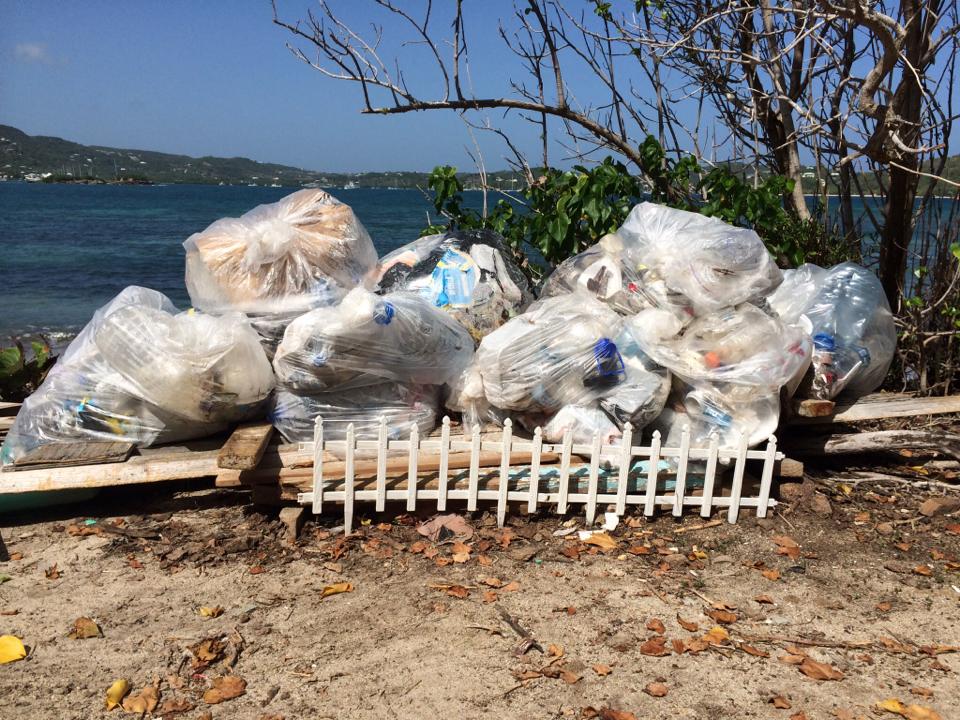
In one month, 30 bags of rubbish were collected in Dieppe Bay, Antigua. Credit: Adopt a Coastline
Kat –
The environment isn’t currently front and centre in Antigua. Like most places the first thought is money and this is the biggest issue we face as human beings to make this switch in priority. There is no economy if we don’t have a planet earth and humans seem to find this hard to grasp.
In Antigua national parks have been turned into imperial economic zones. Developers strip the mangroves, which breaks environmental laws. There is no accountability and they then leave the area part-built or derelict and the natural environment is destroyed.
Hotels are owned by white overseas investors and the government looks outside of Antigua rather than to the creativity and ingenuity of the local people and directing this creativity to an inspiring vision of a flourishing, healthy, abundant natural island and people.
How to make lasting change
Jennifer –
The only thing you can really change is yourself and we can all affect change. We can all start a path or carry a path forward. I think one must correct oneself to see how to create change.
If each person gets to reconnect to nature and reconnect to their original being organically they will be fulfilled. Then wonderful things can spill out. If we teach the children the ways to live organically, they will always understand the impact of their choices and how to move in the world in a way that complements it and the world will change in the great ways we wish for. The children are the teachers, we only need to give them the opportunity to flourish in their roles as natural stewards of the planet and stop suffocating them in classrooms and polluting their minds and bodies.
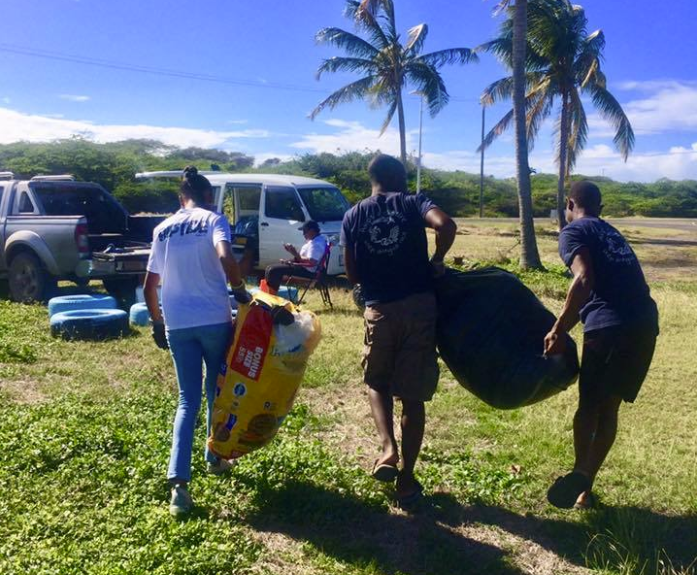
Youth Stewards collecting rubbish. Credit: Adopt a Coastline
Refica –
Education on litter and its effect on nature and ecosystems isn’t covered much in schools in Antigua. I think we need to start putting out the message as young as the age of two, as soon as they can understand, because if you ingrain something in children from when they are small, it’s going to make a difference to how they recycle, how they deal with their trash.
Kat –
Adopt a Coastline has the beginnings of a brilliant initiative here in Antigua that can lead to lasting and inspiring grassroots transformation. By engaging local children, you inspire the innate bond we have with nature and all the wellness that comes from that connection. Being by the ocean, cleaning up, learning about the plants, sea life, planting healthy foods, we are once again part of nature, not separate from it, zoning out on devices. This will be key to health, adapting to climate change and food security.
Investing in young people, in leaders, encouraging, recognising, celebrating and supporting them, will over time bring lasting change.
I’m truly excited by this and the contribution it will make to Antigua and nature Caribbean wide.
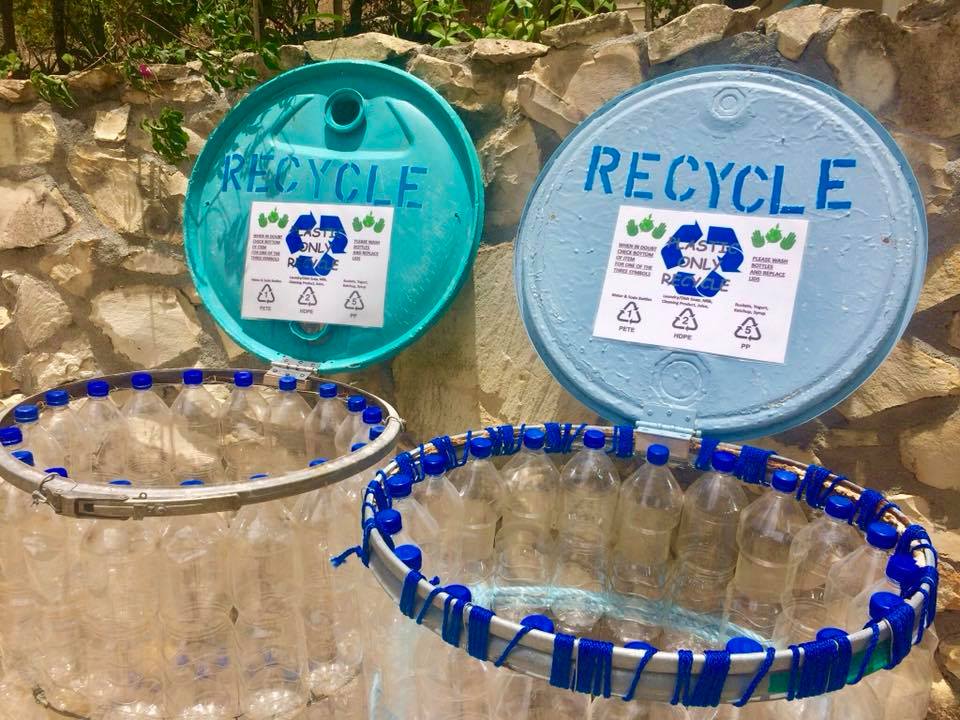
Recycling bins made by Adopt a Coastline using upcycled plastic bins, bottle tops and wire. Credit: Adopt a Coastline
Jennifer and Kat are currently taking the learnings, successes and challenges to develop the next edition of Adopt-a-Coastline, which will seek funding for a schools program inspiring young people to be stewards of their local ecosystems, adapt for climate change and play a key role in coastal clean up and regeneration, initially in Antigua and then across the Caribbean.
